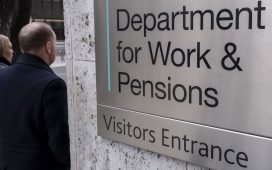A biannual study, of 1,000 aspiring homeowners in the UK, found that while 35 per cent feel optimistic about becoming a homeowner, this has fallen from 42 per cent a year ago.
Almost six in 10 (58 per cent) say they have pushed back their home-buying goals, and now plan to buy later than previously hoped.
And just one in 10 believe they will be able to buy within the next 12 months – down from 35 per cent in November 2022.
Two-thirds (64 per cent) said the cost of living has impacted their disposable income, making it harder to save a deposit – while 51 per cent are concerned about high interest rates, according to the research, commissioned by Moneybox Homebuying [https://www.moneyboxapp.com/home-buying].
Despite this, becoming a homeowner remains a priority for 82 per cent, with half saying this financial goal is very important to them.
This is twice as many as the 24 per cent who said buying a home of their own was very important to them last year.
Despite this, becoming a homeowner remains a priority for 82 per cent, with half saying this financial goal is very important to them.
This is twice as many as the 24 per cent who said buying a home of their own was very important to them last year.
Among those feeling optimistic, 23 per cent have seen their household income increase in the last year, and 25 per cent are hopeful that house prices are falling – while 17 per cent have managed to save more into their deposit than expected.
More than six in 10 (62 per cent) are driven to get on the property ladder to feel more financially secure, while 56 per cent want to stop renting, and the same percentage want to have control over their home, rather than their landlord having the final say.
Brian Byrnes, head of personal finance at Moneybox, said: “First-time buyer hopefuls have endured a sustained period of economic and mortgage market uncertainty – yet despite this, the desire to own a home has increased significantly, and remains their most important financial goal.
“In fact, so far this year, we’ve seen a staggering 42 per cent increase in the number of new customers opening a Lifetime ISA, to avail of the 25 per cent government bonus on their deposit savings – a boost of up to £1000 of free money each tax year.
“There can be no doubt it has become increasingly difficult to get on the property ladder in recent years, and first-time buyers need more support.
“We also know that saving a suitable deposit remains one of the biggest hurdles many face on the journey to buying a home.
“That is why the Lifetime ISA is such a lifeline for so many – with more than 117,000 first homes purchased with the help of a LISA, far sooner than would have otherwise been possible.”
The study also found 39 per cent of prospective first-time homeowners have chosen to bide their time until the housing market is calmer, before trying to buy.
Exactly two-thirds have adjusted their homebuying budget and goals within the last six months, with 29 per cent compromising on their ideal location.
And 27 per cent have decided to save for a larger deposit – with those actively saving for their first home deposit putting aside £287, on average, each month, and hoping to buy in under four years.
The research, carried out via OnePoll, found more people are now relying on their personal savings to fund their home purchase – 76 per cent, compared to just 48 per cent a year ago.
And the number looking for financial support from their family has dropped from 24 per cent at the end of 2022, to 20 per cent now.
Brian Byrnes, from Moneybox, added: “At a time when first-time buyers most need a helping hand, we believe far more could be benefiting from the fantastic Lifetime ISA government bonus than are currently doing so.
“However, the Lifetime ISA may not be suitable for everyone who is eligible for it, so it’s important to do your research.
“While 90 per cent of our Lifetime ISA customers who’ve bought their first home, paid less than £404k, the LISA property price cap of £450k may be a cause for concern for some living in the most expensive parts of the country.
“There is also a 25 per cent government penalty fee on all unauthorised withdrawals, meaning savers may get back less than was paid in.
“Don’t be afraid to seek advice from home-buying experts to help dial down the noise, and thoroughly prepare for your home-buying journey, with greater confidence.”











